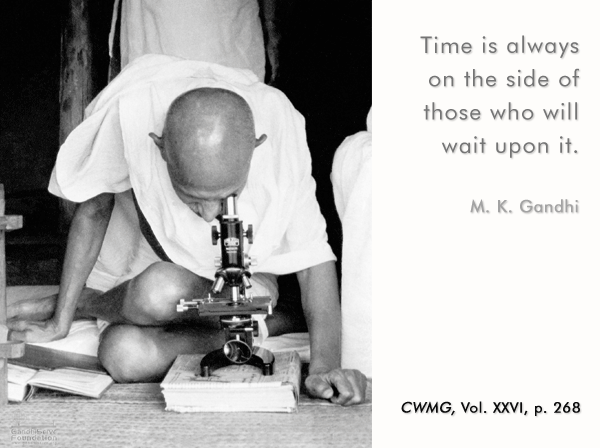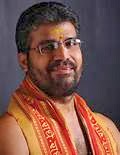SEVEN DEADLY SINS As per Mahatma Gandhi : 6.
Religion Without Sacrifice : 6.
Without sacrifice we may become active in a church but remain inactive in its gospel. In other words, we go for the social facade of religion and the piety of religious practices. There is no real walking with people or going the second mile or trying to deal with our social problems that may eventually undo our economic system. It takes sacrifice to serve the needs of other people - the sacrifice of our own pride and prejudice, among other things.
If a church or religion is seen as just another hierarchical system, its members won't have a sense of service or inner workship. Instead they will be into outward observances and all the visible accoutrements of religion. But they are neither God-centered nor principle-centered.
The principles of three of the Seven Habits pertain to how we deal with other people, how we serve them, how we sacrifice for them, how we contribute. Habits 4, 5 and 6 - win-win interdependency, empathy, and synergy - require tremendous sacrifice. I've come to believe that they require a broken heart and a contrite spirit - and that, for some, is the ultimate sacrifice. For example, I once observed a marriage where there were frequent arguments. One thought came to me : "These two people must have a broken heart and a contrite spirit toward each other or this union will never last." You can't have a oneness, a unity, without humility. Pride and selfishness will destroy the union between man and god, between man and woman, between man and man, between self and self.
The great servant leaders have that humility, the hallmark of inner religion. I know a few CEOs who are humble servant leaders - who sacrifice their pride and share their power - and I can say that their influence both inside and outside their companies is multiplied because of it. Sadly, many people want "religion," or at least the appearance of it, without any sacrifice. They want more spirituality but would never miss a meal in meaningful fasting or do one act of anonymous service to achieve it.
Stephen R. Covey
Note :
"Dr. Stephen R. Covey - one of the world's leading management consultants and author of the best selling book The Seven Habits Of Highly Effective People - is co-chairman of Franklin Covey located in Salt Lake City, Utah in the U.S.A. Franklin Covey provides consultancy services to Fortune 500 companies as well as thousand of small and mid-size companies, educational institutions, government and other organisations world-wide. Their work in Principle Centered Leadership is considered to be an instrumental foundation to the effectiveness of quality, leadership, service, team building, organisational alignment and other strategic corporate initiatives.
Excerpts from Chapter 7 - Seven Deadly Sins - Page 87 to 93
Excerpts from Chapter 7 - Seven Deadly Sins - Page 87 to 93
Mahatma Gandhi said that seven things will destroy us. Notice that all of them have to do with social and political conditions. Note also that the antidote of each of these "deadly sins" is an explicit external standard or something that is based on natural principles and laws, not on social values.

.jpg)



Comments